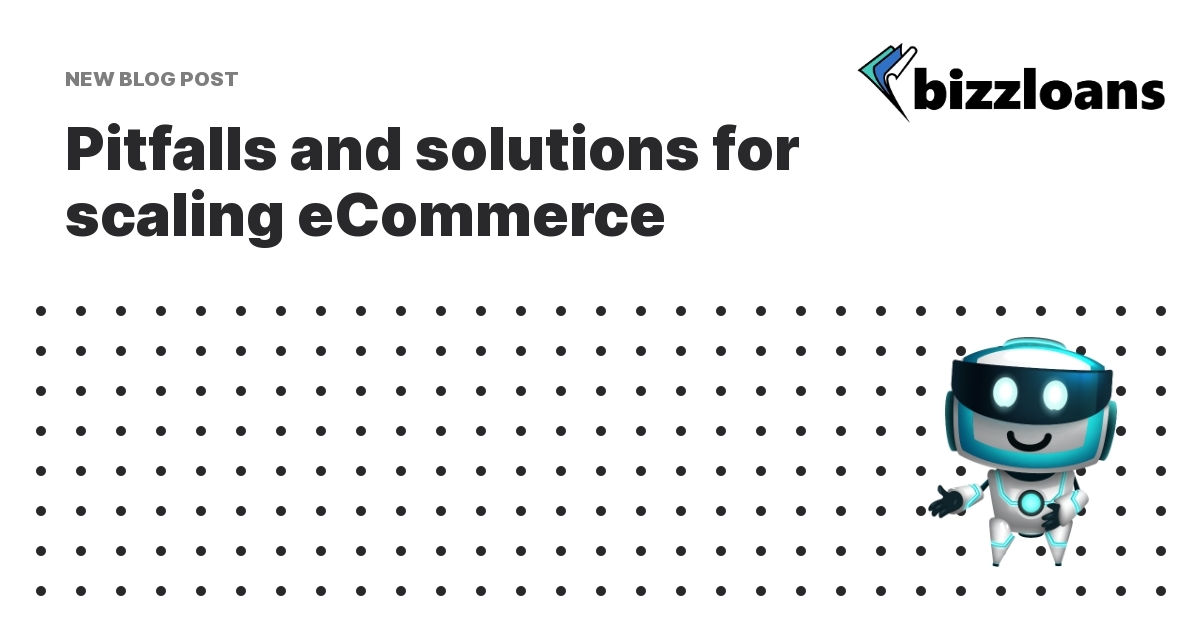Introduction to Financing Options for Businesses

Photo Credits: Www.Bizzloans.Co.Uk by Eugene Jackson
Business financing can be daunting for entrepreneurs. It requires finding the suitable options and choosing the one that fits the business’ needs best. Two popular choices are debt and equity financing. Debt involves borrowing money and paying back with interest, while equity involves selling part of the biz in exchange for funds.
When considering financing, it is essential to consider the business type and needs. Debt is great for short-term funding, while equity is better for long-term. Each has its pros and cons. Debt is lower risk, but limits growth. Equity brings higher returns, but comes with control risks.
Businesses may mix debt and equity financing to optimize their strategy. Striking a balance between the two gives biz the chance to reach their goals.
As an entrepreneur, it is important to evaluate the options, weigh the pros and cons, and select the one that works for the business. Not doing so could mean missed opportunities and holding back growth. Quick and decisive actions are needed to get the funds before it’s too late.
In short, understanding the different financing options is key for entrepreneurs. By exploring debt and equity financing and finding the right balance, businesses can reach their financial goals and succeed in a competitive market.
Understanding Debt Financing

Photo Credits: Www.Bizzloans.Co.Uk by Zachary Wright
Debt financing is a crucial aspect of getting the funding you need for your business. In this section, we’ll discuss the advantages and disadvantages of debt financing. With debt financing, you can gain necessary capital to get your business up and running, but it also comes with some drawbacks to consider.
Advantages of Debt Financing
Debt financing is a popular method for businesses to borrow funds. It has numerous advantages.
For example, interest payments are tax-deductible. This means businesses can deduct the interest before taxes.
Plus, debt financing does not change ownership. Existing shareholders or owners stay in control.
It’s also quicker and easier to access debt funding than equity financing.
Repayment schedules are predictable. This makes it easier to plan future finances.
Also, businesses get fixed payment amounts. This is great for businesses with steady cash flows.
The main benefit of debt financing is businesses can use future income to fund present needs without sacrificing ownership.
But, businesses should be careful with debt. High-interest rates or repayment defaults can arise. So, don’t accumulate too much debt if you don’t want to pay high interest or risk your assets.
Disadvantages of Debt Financing
Debt financing is a popular choice for businesses seeking capital. But, it can have drawbacks. Interest payments can be a financial burden. If payments are missed, legal action and even bankruptcy may follow. This can restrict cash flow and limit business flexibility, particularly during uncertain times. Also, lenders may ask for security in case of default. Business owners may need to put up personal assets as collateral. Interest rates depend on credit history and market conditions. It can be expensive.
Alternative financing options are available. Factoring services, alternative loans, and crowdfunding may offer more flexibility and fewer burdens. Business owners must consider the scale of their operations and keep track of their debt-to-equity ratios. This ratio helps understand the debt level versus the equity of funds raised through shareholders.
M&T Business Banking Specialists can provide info about available financing options. This can help navigate difficult times efficiently. Don’t miss out on opportunities that could drive growth.
Understanding Equity Financing

Photo Credits: Www.Bizzloans.Co.Uk by Philip Gonzalez
Equity financing is a feasible option to help businesses raise capital by selling a portion of the company to investors. However, it may not be the most suitable financing strategy for everyone. In this section, we will explore both the benefits and drawbacks of equity financing to allow you to make an informed financial decision that is best for your business.
Advantages of Equity Financing
Equity financing offers various advantages for businesses wanting to raise funds. By selling ownership or equity in a business, companies can access capital without taking on debt. This can be done by selling shares or membership units to investors in return for funds.
One of the main advantages of equity financing is the flexibility it offers businesses. Unlike debt financing, no regular payments of interest or the principal is needed. Additionally, businesses are not required to repay their investors, lessening the pressure and the chance of defaulting.
Also, investors bring in their expertise and industry knowledge which can help the business and boost its operations. The investors also become owners of the business and share the profits. This increases the potential for high returns on investment compared to other forms of financing.
Moreover, equity financing can improve a company’s creditworthiness compared to loans, which can affect the debt-to-equity ratio. However, there are also disadvantages to equity financing. These include giving up ownership rights and higher risks due to potential dilution if more funding rounds are needed. Equity financing may bring partners, but it may also lead to unwanted opinions.
In conclusion, businesses raising funds can benefit from equity financing due to its flexibility, lack of repayment obligations, access to expertise and industry knowledge, potential for high returns on investment, and improved creditworthiness.
Disadvantages of Equity Financing
Equity financing can help fund a business – but not without its drawbacks. Cost is one of the main cons: investors expect a return, like a large portion of profits or equity in the company. It can be pricey for the business owner.
Loss of control also comes with equity financing. Investors may have different goals, or make decisions which go against the business owner’s plan. Dilution is another issue: when shares are sold, ownership is spread out, and profits must be shared among more shareholders, decreasing each person’s dividend.
Other issues with equity financing include: tough decision-making, personal liability risks, investors with voting rights, and complex contracts. So it’s key to look at debt and equity financing options carefully.
James Chen, CFA (Investopedia’s financial advisor) states: “When seeking funds, companies must consider the tradeoff between diluting their ownership via issuing stock versus being leveraged with debt.” Finding the right balance between debt and equity is essential; the Debt-to-Equity Ratio is a helpful safety net.
To conclude, equity financing has its benefits – but it’s not for every business. Weighing up the pros and cons is key before making a decision.
Debt-to-Equity Ratio and its Importance

Photo Credits: Www.Bizzloans.Co.Uk by Philip Garcia
The debt-to-equity ratio is essential in the business and finance world. It shows the comparison between a company’s total debt and total equity. Investors, creditors, and lenders use this metric to gauge a company’s viability.
To calculate the debt-to-equity ratio, divide total debt by total equity. This result gives the company’s financial leverage, debt coverage capacity, and how much of its operations are funded by borrowed resources. A low ratio is ideal as it decreases the risk of default or bankruptcy.
A low debt-to-equity ratio can have many perks. It reduces interest expenses on borrowing and attracts investors. Additionally, companies with a lower ratio often have a higher credit rating and access lower interest rates.
The debt-to-equity ratio is essential for entrepreneurs. Keeping it low increases financial stability, brings in investors, and lessens the risk of bankruptcy. To make informed decisions, entrepreneurs should understand the importance of this ratio.
Factors Influencing the Choice Between Debt and Equity Financing

Photo Credits: Www.Bizzloans.Co.Uk by Robert Davis
Businesses must consider multiple factors when choosing between debt and equity financing. One of the most important is how much control they want to retain over their company. Equity financing requires giving up some ownership, whereas debt financing lets them keep full ownership.
Furthermore, the amount and timing of funds needed must be taken into account. Short-term funding may be better with debt financing, while long-term growth and expansion plans may benefit from equity. The cost of financing and creditworthiness of the business are also key.
Businesses must assess their present financial situation and future goals to determine the most suitable option. Debt financing offers a fixed repayment schedule, making it easier to plan and budget. On the other hand, equity financing doesn’t require regular repayments but offers potential for exponential growth and returns. Also, the risk the business owner is willing to assume must be taken into account. In the short term, debt financing may be less risky, but interest payments could become overwhelming in the future.
List of Financing Options Available

Photo Credits: Www.Bizzloans.Co.Uk by Keith Adams
If you are planning to start a business, or you are looking for ways to expand your existing business, finding the right financing option can be a challenge. In this section, we have compiled a comprehensive list of financing options that are currently available. These options include bank loans, alternative loans, factoring services, crowdfunding, and venture capital. We will take a closer look at each option and help you understand what it entails. So, let’s explore the various financing options that could be the perfect fit for your business’s growth.
Bank Loans
Getting funds from a bank is often referred to as “Bank Loans”. It is a traditional and popular form of debt financing among businesses. Banks provide different kinds of loans, from short-term working capital loans to long-term asset-based loans. To qualify for bank loans, you need to have high credit scores, business history, collateral and financial statements.
Advantages of bank loans include lower interest rates, longer repayment periods, and flexibility in terms of loan structures. On the other hand, there are some drawbacks like strict eligibility requirements, collateral needs, and difficulties in getting bank approval for startups or small businesses. Bank Loans are usually cheaper than other financing options due to lower interest rates. So, it’s important to consider alternative loans for financing your business without risking your valuable assets as collateral.
Alternative Loans
Alternative loans have become increasingly popular among small businesses seeking funds. Compared to traditional bank loans, these offer fewer requirements and more loan types, such as term loans, lines of credit, and invoice financing. Technology-driven underwriting speeds up the application process. However, higher interest rates and fees reflect the higher risk. Repayment terms are shorter too, ranging from a few months to 5 years. Complex procedures are avoided.
One success story involves an entrepreneur denied bank financing due to insufficient credit and collateral. An alternative lender assessed their revenue and projected earnings, resulting in loan approval. This allowed the business to buy much-needed equipment and expand operations three times faster than before.
If you need quick cash, consider factoring services. For small businesses, there are alternative loan options available to access the funds needed for success.
Factoring Services
Factoring services are becoming a popular way for small businesses to get their hands on working capital fast. These services help those with outstanding invoices, so they don’t have to wait weeks or months for payment. Factoring services give businesses predictable cash flow, so they can plan without worrying about customer payments.
Using factoring services doesn’t affect the business and customer relationship. The business still manages their accounts receivable and talks to their customers. A great part is they don’t need collateral or personal guarantees.
All in all, factoring services are a great financial solution for businesses who want fast cash flow without the long approval processes of traditional lending institutions. If you own a small business and need to increase your cash flow, factoring services might be the answer.
Crowdfunding
Crowdfunding is simple: startups or small businesses advertise their idea/project online. They ask people to support them, in exchange for rewards or equity. This way, they can get their ideas out to a wider audience and attract investors who believe in their vision.
Recently, this method of financing has become popular. It’s an attractive option for business owners looking for money.
Unlike debt financing, like bank loans, crowdfunding doesn’t require interest payments. Owners keep control of their company without debt worries. It can also provide market feedback before launching a product/service and build a customer base.
Many entrepreneurs know the benefits of crowdfunding. It’s a successful way to get capital for businesses.
Venture Capital
Venture capital is a type of investment specifically for startups with innovative ideas and huge growth potential. VC firms invest in these businesses with the aim of getting big returns soon, usually through an IPO or a larger corp’s acquisition.
Although venture capital can offer plenty of cash and know-how to help businesses grow, it also has some drawbacks. VCs usually expect high ROI, so they may want to be involved in company ops and decisions. Plus, the demand for rapid growth and success can be overwhelming for entrepreneurs, adding more stress. Also, many VCs need a considerable amount of equity exchange for their investment, which may reduce biz owners’ control over their firms.
An example of a successful VC investment is Sequoia Capital’s early-stage funding of Google. In ’99, when Google was two years old, the firm invested $12.5 million. This generated returns over 300x the original investment in only 8 years.
If you want to understand finance options for your business better, it’s smart to get advice from M&T Business Banking Specialists. They can help you manage Financing Your Business: Debt vs Equity Financing in a successful way.
How M&T Business Banking Specialists Can Help

Photo Credits: Www.Bizzloans.Co.Uk by Adam Ramirez
M&T Bank is a US bank holding company. It has assets worth more than $142 billion and over 750 branches across the country.
M&T Business Banking Specialists are experts at providing valuable assistance. They help decide between debt and equity financing for businesses. They understand each business has different needs and goals. Specialists offer expert advice to make informed decisions that lead to long-term success.
Specialists can explain advantages and disadvantages of both options. They explain risks associated with each option. They help navigate the complex financial landscape, no matter the size of the project. Specialists provide tailored solutions that meet unique needs.
M&T Business Banking Specialists are also skilled in managing cash, risk, and business planning. Working with them comprehensively ensures all aspects of business finance are managed well.
Don’t miss the chance to benefit from M&T Business Banking Specialists’ expertise. Schedule a consultation to explore financing options and create a plan for financial success.
Conclusion: Finalizing the Best Financing Option for Your Business

Photo Credits: Www.Bizzloans.Co.Uk by George Martin
When selecting a financing option for your biz, debt and equity financing must be taken into account. Debt financing is borrowing money with interest to be paid back. Equity financing is selling a portion of the company for funding.
To choose the best option, growth and profitability potential must be considered. If high, equity financing may be best. It offers more flexibility and access to experienced investors. If lower, debt financing may be more suitable. It’s predictable and doesn’t dilute ownership.
Level of control must also be examined. With debt financing, you stay in control. With equity, shareholders may have to be answered to and some control may be given up.
In the end, the best financing option is unique to each biz. Consider needs and goals, compare costs and benefits, assess risk tolerance, and seek financial advice before making a decision.
Five Facts About Financing Your Business: Debt vs Equity Financing:
- ✅ Companies have two options for raising capital: equity financing and debt financing. (Source: Investopedia)
- ✅ Most companies use a combination of both equity financing and debt financing. (Source: Investopedia)
- ✅ Equity financing involves selling a portion of ownership in the company in return for capital, while debt financing involves borrowing money. (Source: Investopedia)
- ✅ Debt financing requires repayment with interest and collateral, but business owners do not give up control of the business with debt financing. (Source: Investopedia)
- ✅ The choice between debt and equity financing depends on factors such as industry, purpose, and desired level of control. (Source: Pinnacle Financial Partners)
FAQs about Financing Your Business: Debt Vs Equity Financing
What are the benefits of equity financing vs. debt financing?
Companies have two options for raising capital: equity financing and debt financing. Most companies use a combination of both. Equity financing involves selling a portion of ownership in the company in return for capital, and there is no repayment obligation. Debt financing involves borrowing money, but business owners do not give up control of the business. Companies usually choose which type of financing to pursue based on accessibility, cash flow, and maintaining control. The debt-to-equity ratio shows the proportion of financing provided by debt and equity.
What factors should a small business owner consider when deciding between debt and equity financing?
The choice between debt and equity financing depends on factors such as industry, purpose, and desired level of control. Good personal and business credit history is necessary for debt financing, along with cash flow generation and collateral. Equity financing involves investors or partners who expect a return on their investment.
What is the average amount of funding that entrepreneurs need to start a business?
On average, entrepreneurs need $65,000 to start a business, with two-thirds coming from personal savings. The other third can be financed through debt or equity.
What are the risks and benefits of debt financing?
Debt financing involves borrowing money and promising to repay it with interest. Collateral may be required to secure the loan. The benefits of debt financing include quick access to money, knowing the exact cost of financing, and retaining full ownership of the business. Good personal and business credit history is necessary for debt financing, along with cash flow generation and collateral. The downside of debt financing is the need to make scheduled payments on time.
What are the risks and benefits of equity financing?
Equity financing involves selling a stake in the company in exchange for financial backing. The benefit is no debt payments means more cash available, but there is no obligation to pay back equity contributors if the business doesn’t turn a profit. The downside is giving up a percentage of future earnings and potentially part of a potentially profitable business, which could be a costly long-term decision.
What financing options are available other than debt and equity financing?
Other financing options include bank loans, alternative loans, factoring services, crowdfunding, and venture capital. Small business owners need to decide which option is best for their business.


